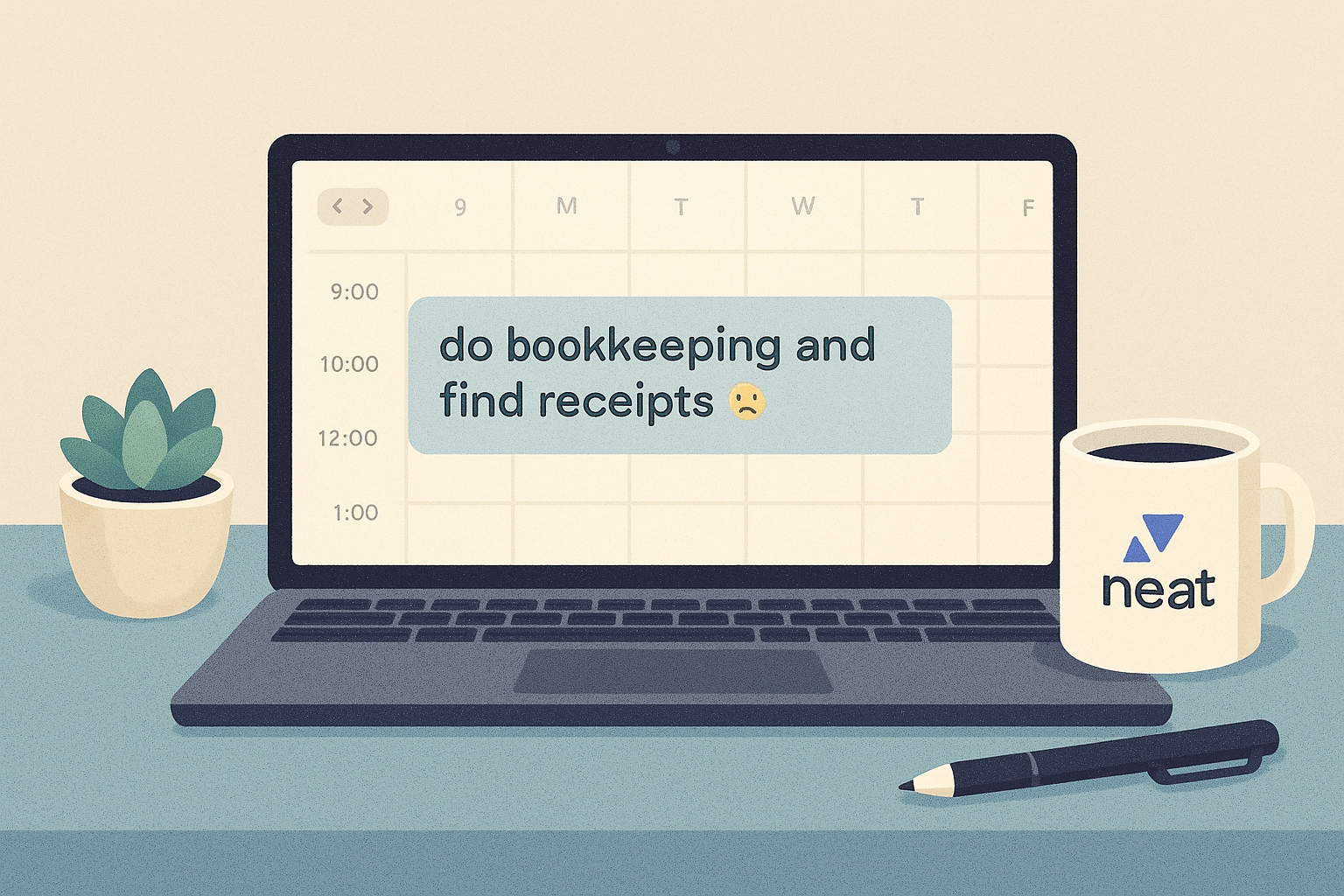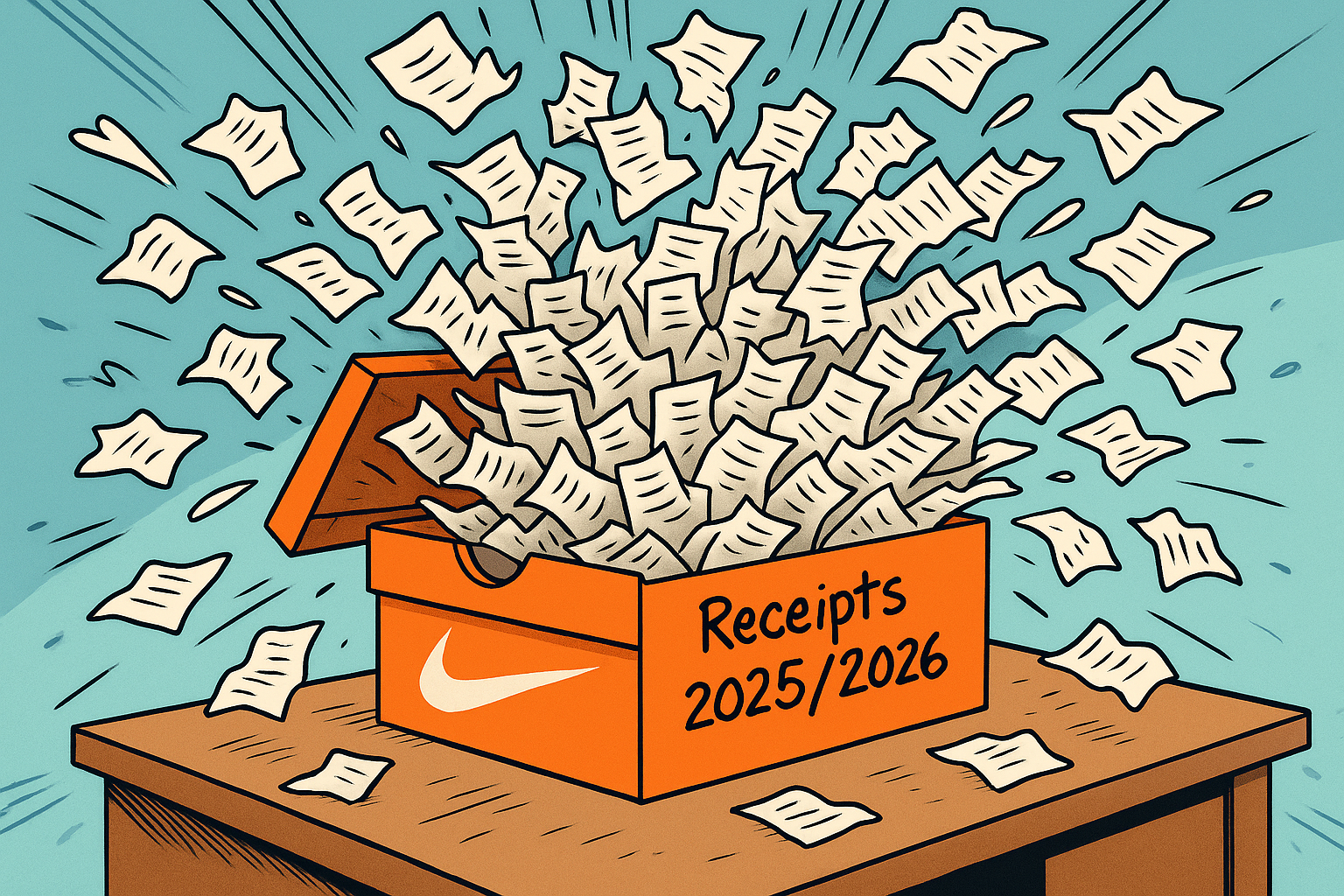Tag: bookkeeping
-

Bookkeeping Basics for Companies With 0–5 Employees: What Really Matters
When you’re running a business with just a handful of people (or maybe it’s just you), bookkeeping often feels like one of those “I’ll get to it later” tasks. But here’s the secret: bookkeeping isn’t about complicated spreadsheets or hiring an accountant on day one. It’s about building a simple, repeatable system that helps you…
-

The Receipt Problem: How Businesses With 0–5 Employees Can Stay Organized Without Drowning in Paper
If you run a business with fewer than five employees, you already know the feeling: you’ve got receipts everywhere. In your wallet. In your car’s cupholder. In a shoebox under your desk. Some of them even fade before you get a chance to record them. And every tax season, you promise yourself you’ll “do it…
-

Bookkeeping Tips for Small Business Owners
If you’re like many small business owners, you may tend to keep many of the financial details of your business in your head or through handwritten notes. This could lead to a myriad of problems down the road, not the least of which is an IRS Tax audit. This blog provides some key bookkeeping tips…
-

Why Business Owners are Moving Away from Outsourced Bookkeeping
By 2025, finance and accounting firms will lose 60% of their outsourcing contracts. That’s more than half of their usual patronage gone because buyers want more competitive prices and automated alternatives. And thanks to limited funds and less staff, small businesses are looking for even more flexibility. Outsourced bookkeeping is on the decline because it…
-

What Does a Bookkeeper Do That I Can’t Do Myself? (Spoiler: Not Much.)
Many experts believe (and vocally declare) that every business needs a bookkeeper. We disagree. Technology’s capabilities have surpassed the need for human involvement in all but the most complex business accounting tasks. So, why do small businesses still phone bookkeepers to help them get organized and compliant? Because they’re in the dark, wondering, “What does…
-

Drowning in Disorganized Accounting Books? Here are Your Options.
Businesses never start out disorganized. Chaotic processes and records become that way over time. No matter how long it took for your accounting books to go from tidy to disordered, messy recordkeeping affects your company’s vitality. Research from office supply retailer Staples found that 53% of thriving or surviving businesses stated they had very organized…
-

How to Do Bank Reconciliation in Real Time, Not a Month from Now
The 21st-century economy moves in real time. Why, then, do you still have to wait until the end of the month to see how your business’s finances are doing? The answer is, you don’t. Bank reconciliation is the act of matching and validating your bank’s transactions against those in your internal ledger. The only reason…
-

Transaction Reconciliation Sucks. Now, You Can Automate it Instead.
There’s a difference between what you know about your business’s finances and what your bank knows. Balancing out the difference is a process called “transaction reconciliation.” Doing it manually sucks time, energy, and momentum out of your day-to-day. But with Neat, you can reclaim that precious time and energy by automating the task. The many…
-

Ask the Expert: A CPA’s Top 5 Small Business Accounting Tips
More than three-quarters (78%) of small business owners haven’t completed any formal business training. But 83% of them consider themselves knowledgeable, very knowledgeable, or extremely knowledgeable when it comes to accounting and finance. Are leaders overestimating their savvy? Absolutely, says CPA Courtney Thayer. “Business owners often feel knowledgeable about their finances just because they get…
-

Ask the Expert: An MBA’s Guide to Cash Flow Analysis
Research from Bank of America tells us that of all the businesses that conduct yearly cash flow analyses and forecasts, only 36% succeed. That number jumps to 80% for companies that perform this exercise monthly. That begs the question: If performing a monthly cash flow analysis more than doubles a company’s chance of survival, why…